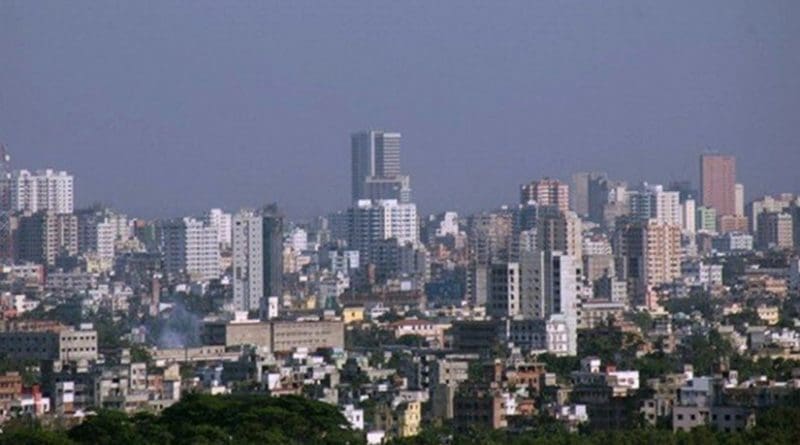Bangladesh: Balanced Energy Mix May Establish Energy Democracy – OpEd
In recent years, Bangladesh had suffered a lot due to energy deficiency. Since assumption of power in 2009, the government has been persistently trying to improve the energy situation in Bangladesh. With a vision of graduating from a least developed country to a middle-income country, our energy vision is “to ensure energy for all”, by achieving the target of 24,000 MW power by 2021.
In 2015, to promote demand-side energy efficiency, the SREDA (Sustainable & Renewable Energy Development Authority) developed the “Energy Efficiency and Conservation Master Plan up to 2030”. It emphasized to reduce import of expensive fuels and improve the balance of payment situation. It also aimed to improve the national primary energy consumption per gross domestic product in 2030 by 20 percent compared to the 2013 level.
Currently, domestic natural gas accounts for 55 percent of the primary energy supply. It is anticipated that gas supply in the country will reach its peak in 2018 and gradually decrease thereafter. So, it is unusual for us to resort to natural gas for power generation. This is why the Power Division aims to generate 19,000 megawatts of coal-powered energy by 2030.
Bangladesh has planned to set up 25 coal-fired power plants, eyeing on 2.0 percent to over 50 percent coal use to meet the country’s electricity supply by 2022. With strong financial backing, China investment become nearly twofold in coal-based power plants in 2016. This is how more coal-fired power plants are on the net in Bangladesh.
It is clear that Bangladesh is betting on coal as it is the cheapest primary energy. However, these initiatives are threatening the programme of cutting greenhouse gas emissions. Based on what the government reported to the UN climate body, the country expects to increase emissions almost threefold by 2030.
Is it urgent for us to replace dirty energy with renewables so soon? Our lives and economy are powered by fossil fuels despite having some notable downsides. Also, we know that burning fossil fuel causes wrapping Earth’s atmosphere in a blanket of heat-trapping carbon dioxide.
Considering to energy democracy, the promise of energy for all is the priority for us, the government has already identified the problems with our current systems of power.
Like many developing countries, Bangladesh argues it has a right to burn fossil fuels in order to develop. After all, the country has historically emitted very little— that accounts for only 0.3 percent of global greenhouse gas emissions. Now the government has told the UN climate body it will reduce its projected emissions by 5 percent, and with international support by 15 percent.
It is obvious, we need to imagine an alternative energy future—one that relies far more on off-grid renewable energy. The solar home system can be a great example of that, where over four million solar home systems have been distributed over the last five years. About 150 megawatts of electricity servicing close to 20 million people now; however, the aim was to generate 220 megawatts of electricity by 2017 through the solar home system program.
Last year, across the country, grid electricity was valued over off-grid renewables has made the distribution of solar home systems dropped. It is a perception among rural people’s mind, solar panels are associated with being backward in Bangladesh. Making things worse are the lone electric poles that stand tall in villages, built by politicians who have promised access to the grid in a few short years. Now, villagers are not willing to invest in solar as they are expecting grid access in a few short years. So, it is difficult to influence the villagers into purchase solar home systems at this moment.
Ironically, a rapid transition to renewables alone can’t address the corrosive concentration of power in our society. Instead, we need to promote energy as a vital resource for advancing the environmental, economic and social-justice needs of our communities.
In Bangladesh, the concept of energy democracy is a new one. To understand this concept, we may consider energy as—both fossil fuels and renewables—is not simply a commodity to be bought and sold. it is part of the commons—a precious global resource that must be respected, conserved and equitably shared.
Undeniably, the fossil-fuel-driven energy system has insidious effects on democracy and civic life. However, a balanced energy mix could share control of the energy supply in Bangladesh. A positive perception about energy access may establish energy democracy as a powerful tool to empower people and communities to build a society worth living in.
*Zulker Naeen is a communication graduate from University of Liberal Arts Bangladesh (ULAB), is a freelance journalist at Climate Tracker. [email protected]

